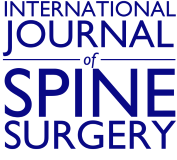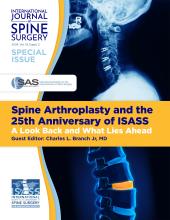Abstract
Background: Recombinant human bone morphogenetic protein-2 (rhBMP-2) is frequently used to promote new bone growth after lumbar fusion surgery. However, because BMP receptors are found on cancer cells, there is concern about potential cancer following treatment with rhBMP-2. Data from clinical trials have reported divergent results and have been limited by small sample sizes and relatively short follow-up. We therefore examined the long-term risk of cancer following treatment with rhBMP-2 after lumbar fusion surgery.
Methods: Using the MarketScan Commercial Claims and Encounters database, we identified all patients <65 years without prior cancer who underwent lumbar fusion surgery between October 2003 and December 2009 and were followed at least 3 years after surgery. Development of any Surveillance Epidemiology and End Results malignancy in follow-up was identified through diagnosis and procedure codes.
Results: Among 39 448 eligible patients, 2345 (5.9%) received rhBMP at surgery; the median follow-up in this population was 4.87 years. Cancer in follow-up was observed in 49 BMP-treated patients (0.43/100 person years) and 1072 nontreated patients (0.58/100 person years). Use of rhBMP was associated with a cancer risk similar to that of untreated patients in both univariate (hazard ratio, 0.80; 95%, CI 0.54–1.19) and multivariate proportional hazards analyses (hazard ratio, 0.81; 95% CI, 0.54–1.20). Similar findings were observed in a secondary analysis after adjustment for likelihood of rhBMP administration.
Conclusions: In this retrospective cohort with at least 3 years of follow-up, administration of rhBMP during lumbar fusion surgery was not associated with an increased risk of subsequent cancer.
Level of Evidence: 4
Footnotes
Disclosures and COI: The study was funded by a research grant from Medtronic, Inc. The sponsor had no role in the design of the study or content of the manuscript. Neither author had any financial interest in Medtronic. Dr Cooper is also supported by grant P30-CA43703 to the Case Comprehensive Cancer Center and grant UL1TR000439 from the National Center for Advancing Translational Sciences.
- ©International Society for the Advancement of Spine Surgery







